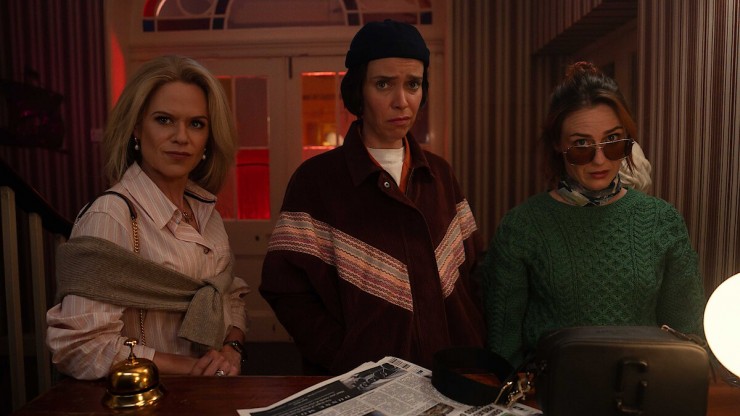Channel 4’s future is in the spotlight at the RTS Cambridge Convention, with the government claiming keeping its current funding model would be an “act of self-harm” and Ampere Analysis suggesting privatisation could force 60 indies to go bust.
Oliver Dowden had been due to speak to the festival this afternoon but was reassigned from culture secretary to 'minister without portfolio' in Boris Johnson's latest cabinet reshuffle - with Nadine Dorries taking over the culture brief.
Briefing the media ahead of his planned speech, Dowden acknowledged C4 is “currently in a stable condition” and praised its coverage of the Paralympics and last weekend’s French Open tennis final.
Speaking over Zoom, culture minister John Whittingdale stepped into reframe the speech as the government's position, stating it was concerned about the broadcaster’s long-term future and ability to continue to deliver such “national moments”.
“If Channel 4 wants to grow then at some point soon it will need cash,” the speech said. “Where does that cash come from? It can either come on the back of the taxpayer, or it can come from private investment…I do not believe the borrowing of a commercial TV channel should be underwritten by a granny in Stockport or Southend.”
Rejecting what it describes as the “false binary choice between public service content and privatisation,” it said that in drawing up continued public service broadcasting obligations following a sale of C4, he “would imagine” it would include commissioning programming from indies.
Dorries has yet to comment on the future of C4. Whittingdale has subsequently left his post.
Indie worries
However, Ampere said any new owner is likely to look at cuts to C4’s £660m annual commissioning budget as it looks to make savings.
In its analysis of the 200 indies C4 worked with over the past two years, Ampere found that almost 140 relied on the broadcaster for at least half of their TV commissions, with regional indies particularly reliant on the broadcaster.
“A privatised C4 would likely leave many financially challenged,” it said. “A sale, alongside a relaxation of its remit, would undermine the UK government’s ‘levelling up’ agenda.”
C4 has already published research forecasting 1,300 job losses among its key suppliers.
In its submission to the government’s C4 consultation, the Grierson Trust pointed out that C4 currently supports 3,000 jobs across the UK and more than half of its spend was outside London in 2020/21. It also highlighted the £12bn the broadcaster has ploughed into the production sector through its Indie Growth Fund.
Grierson Trust chair Lorraine Heggessey said C4’s “societal value” would be at risk if ratings and profits to shareholders become a priority.
‘It is critical that the conditions of any sale are explicit and measurable in order to ensure that these core values which make a large contribution to the sustainability and growth of the UK’s creative sector are retained,” she said.
ITN, producer of Channel 4 News as well as bulletins for ITV and Channel 5, warned in its submission that if C4 was bought by a private owner with an in-house production arm, it could "undermine the independence of the news and have undue influence on the news agenda".
It added: "Removing the publisher/broadcaster status would remove a major buyer of content in the UK and have an adverse impact on the independent production market that relies on Channel 4 for a proportion of commissions and work."
The government closed its consultation on C4 closed last night but, reading Dowden's words, Whittingdale laid down the gauntlet to the government's detractors: “If people disagree, then this is my challenge to them: please tell me how they’d intend to protect C4 and the wider creative industries in a fairer, more sustainable way. Because standing still is not an option. In fact, it would be an act of self-harm.”


